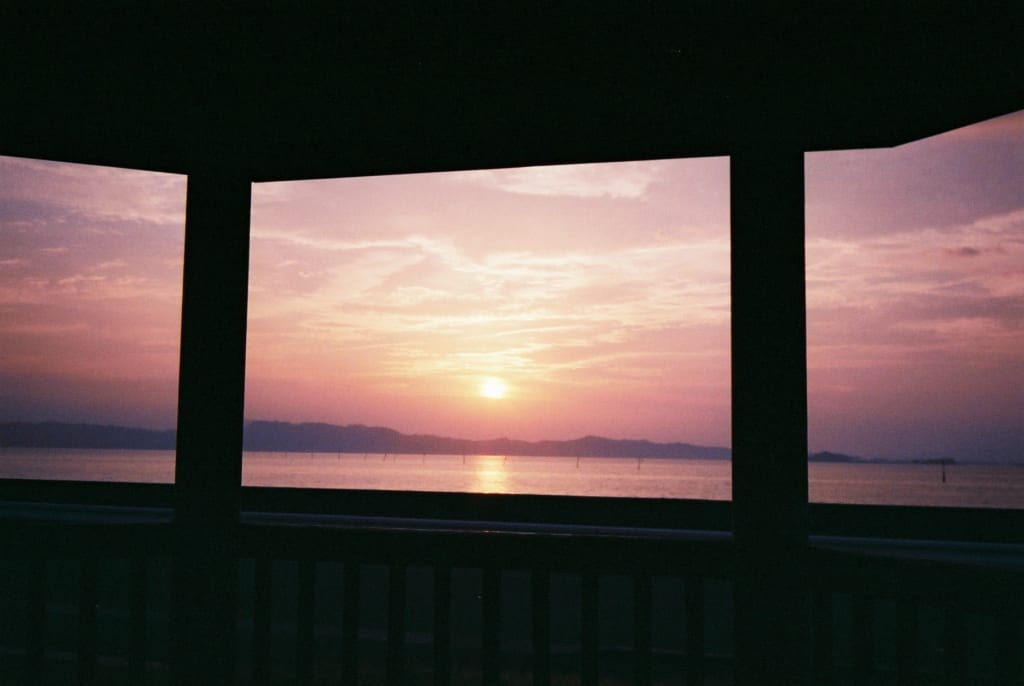
At 6 o'clock EST, my family and I gather to pay homage to our mortality. It is human nature to cling to familiarity, and in these turbulent times we have committed to upholding as many family traditions and maintaining as many daily routines as possible, just to preserve the illusion that we have any semblance of control. TV together at dinner is one of these routines. Dinner at the same time every evening, and the same channel with the same program while we eat.
Tonight's episode opens with the familiar fanfare. First, a brief overview of the plot developments of the day, voiced over by omniscient narrators: the unfolding arc about delayed vaccine shipments to Ontario hospitals; more character development on the coronavirus, which now has a South African variant in addition to its older UK variant; a riveting new saga about small-town Redditors and their memestocks vs. capitalist giants, which is vaguely reminiscent of an Old Testament biblical tale; revisiting the looming crisis of rapidly melting polar ice caps, which never ceases to be a stunning cliffhanger to any story. Yet another thrilling edition of the latest updates on how the Earth is hurtling towards its own social and environmental destruction.
It's long been clear to me that we only consume media for one of two reasons: to make sense of reality, or to escape it. Conveniently, the 6 o' clock news helps us to do both. The current state of our world has made us all to suffer from a synthetic agoraphobia; we obediently leave death at the doorway and hide away in our poignantly named living rooms, huddling closer to the voices that tell us what to fear.
In accordance with anything else that's binge-worthy, I catch myself at the proverbial water cooler (the literal one having being prohibited, of course, by the informants on the show) celebrating, commiserating, rejoicing, lamenting with anyone else who has caught the latest update on developing arcs. Did you see what Kamala Harris' step-daughter wore to the inauguration, I'm not sending my kid to school even if they open up again, do you think Trudeau is behind the PS5 shortage too, #ACAB, #MeToo, #SayHerName, I saw SOPHIE's full moon last night and now it haunts me, I can't believe Kobe's helicopter was one year ago, you know it's not really a great business move to threaten the lives of your customers by opening during a pandemic. To miss an episode is akin to alienating oneself from the conversation during a time when socializing is already hard to come by. Not to mention that the world moves at an astonishing speed; to be even one week behind everyone else is to be in the dark about new characters on the scene, nascent trouble brewing in far-off lands, falling action events on older plot points closer to home, and everything in between.
Drama enraptures its viewers, but the problem with watching the 6 o'clock news as drama is that it fails to ever resolve. Drama as a television genre is effective because it introduces tension, stretches the viewer until she cries for mercy, and then releases her from its vice grip. Even the deepest masochist sighed in relief when GoT's "The Red Wedding" episode came to an end. The narrative of the 6 o'clock news, however, has played with ongoing themes of death, injustice, calamity, corruption, greed, tyranny, oppression, war, vanity, selfishness, pride that have existed since the day humans learned to point fingers. Your run-of-the-mill HBO drama has nothing on this level of emotional manipulation. The dread that encroaches when I turn on the TV, the low-simmering anxiety I've been conditioned to feel after hearing the segment's opening fanfare: these are all products of masterful fearmongering. People are drawn to disaster; they care more about the number of cases than the number of vaccines. The ratings come from knowing what makes people afraid.
And I am so afraid, but also dying to know what happens next. The wonders and horrors of non-fiction have effectively ruined my appetite for fiction. Not only have I lost interest in any paltry mimetic representation of the news—why watch Game of Thrones when the former POTUS fueled insurrection? Why watch reality TV when I have reality?—but even as I slowly become desensitized to the violence and atrocities broadcast to my home every night, I just can't look away. It's almost as if reminding myself of what I'm avoiding makes it easier to cope with the reality that it's happening right outside my doorstep. I can't think of a more fitting description for how tethered I am to the news than by calling it a guilty pleasure: the pleasure comes from knowing I've successfully averted another day of trouble; the guilt is survivor's guilt, from knowing that it could just as easily have been me.
To "binge" implies a degree of addiction, and I've inadvertently become addicted to the zeitgeist of despair. I know this because I'm not tuning in for the sports segment, nor the lighthearted, feel-good afterthoughts they feature as a balm for the searing impact of everything that preceded it. My devotion to the 6 o'clock news stems from morbid fascination with all the harm that could have befallen me. The world is burning, and I'm just a spectator; gather 'round the fire, everybody—today's another rerun.
Of course, even in framing a confession of generalized anxiety like this, I know that it would be silly for the narrative to end here. Maybe then, the solution comes from observing how others curb their addictions to television. Unfortunately (or perhaps, fortunately), the series I'm watching has no foreseeable end—but it does have an 'Off' button. Binge-watching a series is relatively harmless, unless it hinders productivity or prevents time being spent wisely on other, more pressing needs. At the end of the day, why do people turn to television? To enjoy time off. To learn more about the world. To be part of the conversation. No one watches Netflix to feel bad about themselves, or to feel worse about the current predicament that they are in. Maybe I should treat watching the news in a similar way.
So what does this look like, practically? How do I stop doomsurfing?
To recognize the amount of time I spend doomsurfing is essentially to recognize the amount of time I'm wasting. Every minute I spend watching the news is a minute I could have spent watching something else. If we go by the aforementioned unspoken laws of when and why to watch Netflix, the only healthy way to engage with the news nowadays is to do so with the proper intentions: know enough to be hopeful, know enough to help others be hopeful, and know enough to help those who are in need.
And if I do this right, maybe next time, I'll have something else to write about.
About the Creator
Sharon Lo
I have Sushi Bong on speed dial






Comments
There are no comments for this story
Be the first to respond and start the conversation.